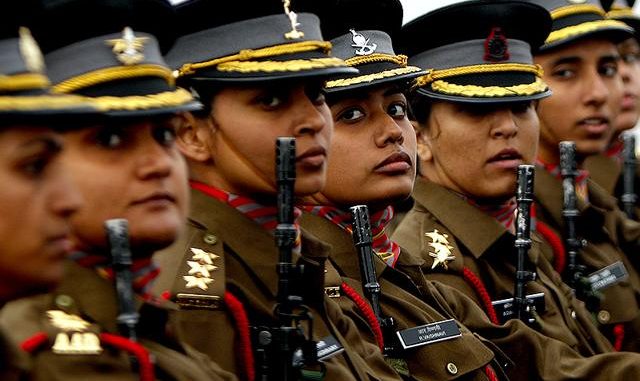
By Monami Gogoi
New Delhi : The Indian Army will soon allow women in combat, breaking yet another gender barrier. Army chief Bipin Rawat said on Sunday the process to offer combat roles to women was moving fast.
When it comes through, India will be one of the few countries allowing women to take up the risky job. Here is a list of countries that allow women on the front line:
Canada:Since 1989 all military occupations have been open to women. The submarine service was a little late in opening up, but it did in 2000.
Representation of women in the Canadian armed forces has grown from 11.4% in 2001 to 15.1% as of February 2017 .
The US: Women in the US military are playing a more active role in direct combat women since 2002, as a result of wars in Iraq and Afghanistan.
The Guardian reported that in January 2013 the US military officially lifted a ban on female soldiers serving in combat roles and said anyone qualified should get a chance to fight on the front lines of war regardless of their sex.
Australia: From January 1, 2013, the country opened all employment categories in Australian defence force to women who were serving in the ADF.
The Australian department of defence said women serving members of the ADF were entitled to apply for a career in a combat role, provided they met the requirements.
The UK: In July 2016, Prime Minister David Cameron lifted a ban on women serving in close combat units in the British military, the BBC reported.
In May that year, the ministry of defence published a paper on the role of women in ground close combat, saying “opening GCC roles to women will maximise the talent available to defence and deliver equality of opportunity for all service personnel”.
Apart from these countries, several European nations allow women in the combat roles. A 2010 survey by the British Ministry of Defence listed the following countries:
Denmark: The Danes adopted a policy of total inclusion in 1988 following trials in 1985 and 1987 exploring the capabilities of women in combat, according to a 2010 survey by the British ministry of defence. The survey listed several European countries and also talked about Israel and New Zealand, as mentioned below.
Finland: Finland allows women in close combat roles. All services and units of the Finnish defence forces and the Finnish border guard accept females.
France: Women can serve in the French military except on submarines and in the riot-control gendarmerie. In 2006, 1.7% of combat infantry comprised women and 19% of French military personnel were female, the British survey found.
Germany: Women first joined German combat units in 2001 following a ruling by the European Court of Justice, which said preventing women from combat roles was against the principles of gender equality.
Israel: It was in 1995 that the Israeli defence force began incorporating women in combat positions.
The Netherlands: The Dutch allow women in close combat roles.
New Zealand: The country has no restrictions on roles for women in its defence force, says the UK survey. They can serve in the infantry, armour and artillery divisions as a consequence of legislation that came into effect in 2001.
Norway: In 1985, equal opportunities legislation was applied to the Norwegian armed forces and Norway became the first Nato country to allow women in all combat functions, including submarines.
Poland: Poland employs women in close combat roles. The country allows women to volunteer and serve in all services of the army.
Romania: There is no distinction between Romanian men and women with regard to combat roles.
Spain: The armed forces personnel law in May 1999 eliminated gender discrimination and women were allowed to join all positions in any service.
Sweden: Since 1989, there have been no gender restrictions to any positions in the Swedish military. According to the British survey, women are allowed in all services and roles including combat.
Source: Hindustan Times

Leave a Reply